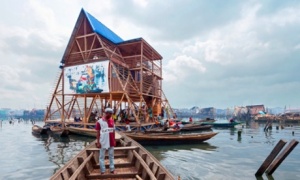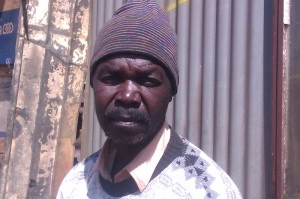Chris Michael – The 2014 World Cities Day Challenge: Champion Your City’s Best Idea
September, 2014. Guardian Cities and UN-Habitat want to hear one idea, pioneered by your city, that other cities should adopt. Could you be the person to represent your city?
This 31 October, it will be time to dress up, show off your best ideas and maybe even scare a few people. You guessed it: it’s the inaugural World Cities Day.
To celebrate the big event, Guardian Cities and UN-Habitat hereby announce the World Cities Day Challenge. We want to hear the best ideas from cities around the world – one idea, pioneered by your city, that other cities should adopt. And you could be the person to represent your city on the big day.
Every city has different ideas that make it great, from the first skyscrapers and metros in New York and London to more recent innovations like congestion charging, bike sharing, buried expressways or floating schools. What unique venture can your city boast to the rest of the world – something that would make a real difference to the lives of residents of other cities?
If you think you’ve got what it takes to be the representative of your city’s best idea, we want to hear from you now! We’ll pick one individual or group per city, who will each get their own slot on the Guardian Cities website to present their idea over the course of 31 October.
Read more: http://www.theguardian.com/2014-world-cities-day
Future Cape Town – A New Design For RDP Housing In South Africa?
September 2014.
Transforming problems into assets for low-income households
Based on the ‘less is more’ principle, Embracing Informality brings an ingenious perspective to the unsustainable problem of backyard shacks.
Less is more. A classic phrase that is so often overlooked or ignored by so many. Cue Cape Town-based architectural student, Lawden Holmes. Competitive by nature, Lawden − one of the Better Living Challenge’s 23 finalists − has adopted the ‘less is more’ approach with his new concept − Embracing Informality: a sustainable alternative to the RDP.
Lawden’s project seeks to embrace South Africa’s perpetual informality, learn from it and turn it into a usable solution. The idea is inspired enough, but it has evolved significantly from its humble beginnings. When those around him considered the informality of a situation as a problem, this pioneering student chose to embrace it by effectively engaging in the reality of informality and its associated complexities.
But it was on a visit to a settlement in Du Noon that Lawden’s idea really crystallised. “I was part of a group from the University of Cape Town [UCT] that did extensive research on the Du Noon settlement,” he says. “My architectural solution came directly from our research, which uncovered the need to address the living conditions the backyarders were living in.”
Experiencing the reality of so many South Africa lives first-hand made Lawden realise how urgent it was to house the country’s growing population adequately. And so his investigations began.
It was only later, when the Better Living Challenge was pitched to UCT architecture students, that Lawden was inspired to enter. “The current RDP model simply won’t do and is not the answer to South Africa’s housing needs,” he emphasises. As he paid more and more visits to Du Noon, he soon found himself changing the way in which he approached architecture.
As Lawden’s knowledge grew, so his designs grew and ultimately enhanced the way he looked at an informal settlement’s space and environment.
The starter unit he has developed allows for a variation of bedroom and living spaces on two floors, with the room dimensions based on those of a double bed. The unit grows in size with the addition of informally constructed backyard rooms for rental.
Eventually, this rental income and bigger budgets allow the formal structure to be extended in place of the backyard rooms. “The housing unit turns the unsustainable problem of backyard shacks into a solution,” explains Lawden. “The aim is to create an asset that appreciates in value over time.”
Soundtrack: Freshlyground – Mowbray Kaap
Read more: http://futurecapetown.com/housing-in-south-africa
Bheki Simelane: Re-blocking Shacks In Protea South: “It Doesn’t Make Sense To Me.”
thedailyvox.co.za. September 2014. The much debated realignment – or re-blocking – of shacks in the Protea South Informal Settlement is now underway but many residents are still unhappy about the exercise. BHEKI SIMELANE spoke to residents about the process.
Solomon Ntibane, 55, unemployed
I cannot complain much with the process itself because we were promised that when the realigning exercise comes to an end they’d furnish our shacks with electricity and be in a position to provide us with basic services. My only problem is the way the whole exercise is being carried out. My shack was moved a mere five meters from where it originally was. At the new location I noticed that there was a farrow that would Channel rain water straight into my shack. They told me they’d clear the area but three months after I was moved nothing has happened. I fear for my grandchildren for rain is imminent and this whole place will be flooded.
Read more: http://www.thedailyvox.co.za/hacks-in-protea-south




